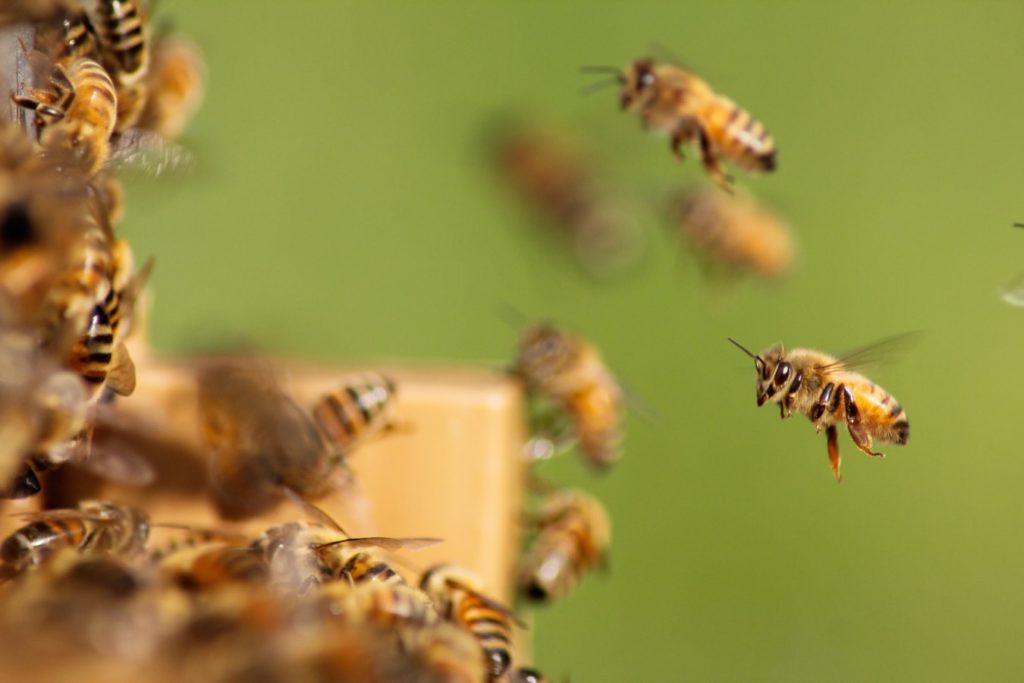Everything You Need to Know to Start Beekeeping

Perhaps you’ve heard a friend talking about beekeeping, or you’ve read news articles about the demise of bee population and the importance of beekeeping. Or perhaps you simply love honey. Matthew Davies and I happen to love beekeeping (in addition to many other things); given the dramatic drop in bee populations and other challenges in the natural world, I wanted to write about my experiences with beekeeping to pas along knowledge and my passion. I hope this article will provide you with the answers to questions you may be having about beekeeping, and may even help to convince you what a worthwhile pursuit beekeeping can be.
Below, you will find the first six steps you are going to want to take to start your beekeeping hobby. The Bottom line: beekeeping can be a hobby or a very successful business. So, without further ado, let’s look at these steps in more detail.
Join a Beekeeping Association
The American Beekeeping Federation (https://www.abfnet.org/) is your first stop; the association is a hub of knowledge for beekeepers. In addition, many local areas will have their own groups and individual associations. Most of these groups have experienced beekeepers that are looking to impart their knowledge onto someone new to beekeeping. Consider sitting down with one or two of them over a cup of coffee and pick their brain for information that you are going to need. Better yet, see if they will let you visit their hives. That will allow you to have a firsthand experience of what you are getting yourself into.
Workshops
Some of the associations that I mention above will offer workshops. Consider joining one of these workshops to gather even more knowledge. Since you are going to possibly need to buy a queen to start your bee yard, you are going to have to have a little bit of knowledge ahead of time. As I mentioned above, in recent years, there has been a decline in the number of bees in the world. Therefore, sellers are getting even pickier to who they sell their queens. To gain knowledge, you are going to have to take some classes. That way, when you go to purchase your hive or queen, you can prove to them you know what you are talking about.
Start Small
In other words, don’t bite off more than you can chew. On the other hand, you don’t want the bee yard to be too small. Consider starting with just two or three hives. Don’t worry. You will be able to expand if you find this is something that you enjoy. Remember, with each colony you are going to have to make sure that you can cultivate it when the time comes. That can be time-consuming. Make sure that you have that kind of time in your schedule. If you don’t, consider clearing some other things from your plate before taking on such a task.
Make a Plan
As will all things in life, having a plan makes things run smoother. Armed with the knowledge that you acquired from the Association and the workshop draw up this plan. When you think you are ready, take it back to one of those two places and get their input. There may be some things you need to consider that you have not. They will be able to point these things out. Make the changes, so there are no surprises when it comes time to place your hives.
Consider the Equipment
Bees are hardy, but not invincible. It is easy to kill off an entire hive (or scare it away, causing a swarm) if you do not have the right equipment (or training). If you have not taken the time to consider the amount of equipment you are going to need, now is the time. There is a lot more equipment that you are going to need than you can fathom. At the same time you are going over the plan with a veteran member of the Association you joined, ask them if you have missed anything on the list of equipment you intend to purchase. I know when I started my hives, there were a few things I was missing.
Local Laws
Now that you have your plan, your equipment, and the knowledge to start your hives, you are going to need to make one more step before launch. You are going to want to look over your state and local laws. Municipalities have many different laws governing the use and set up of bee farms, some require the registration of bee farms (not to be nosey, but to make sure the local governments can keep a tally on the number of bees in the area as bees are so important to pollination and the health of the land as a whole). Take the time to go to city hall and ask them for any literature they have on the subject. Should they not have any, ask them if there is a specific place that you can look to stay within the law.
Additionally, some local governments will offer information regarding the best practices you should be exercising, as well as information about local pesticide, and understanding of what element are used and where will help you to keep your bees safe.
Conclusion
The steps above are the beginning of the journey toward beekeeping; there are many more steps and I’ll write more soon. In the meantime, I hope I convey my passion in the years – in the years that I have been beekeeping, and I highly recommend it to whoever has an interest. Its not easy; being stung in commonplace, bees can be temperamental, difficult and fragile, but ultimately the work is worth the effort. Ultimately bees are beautiful creatures, fascinating societies, and, frankly, critical to human existence. I wish you nothing but the best of luck and success with your beekeeping hobby.